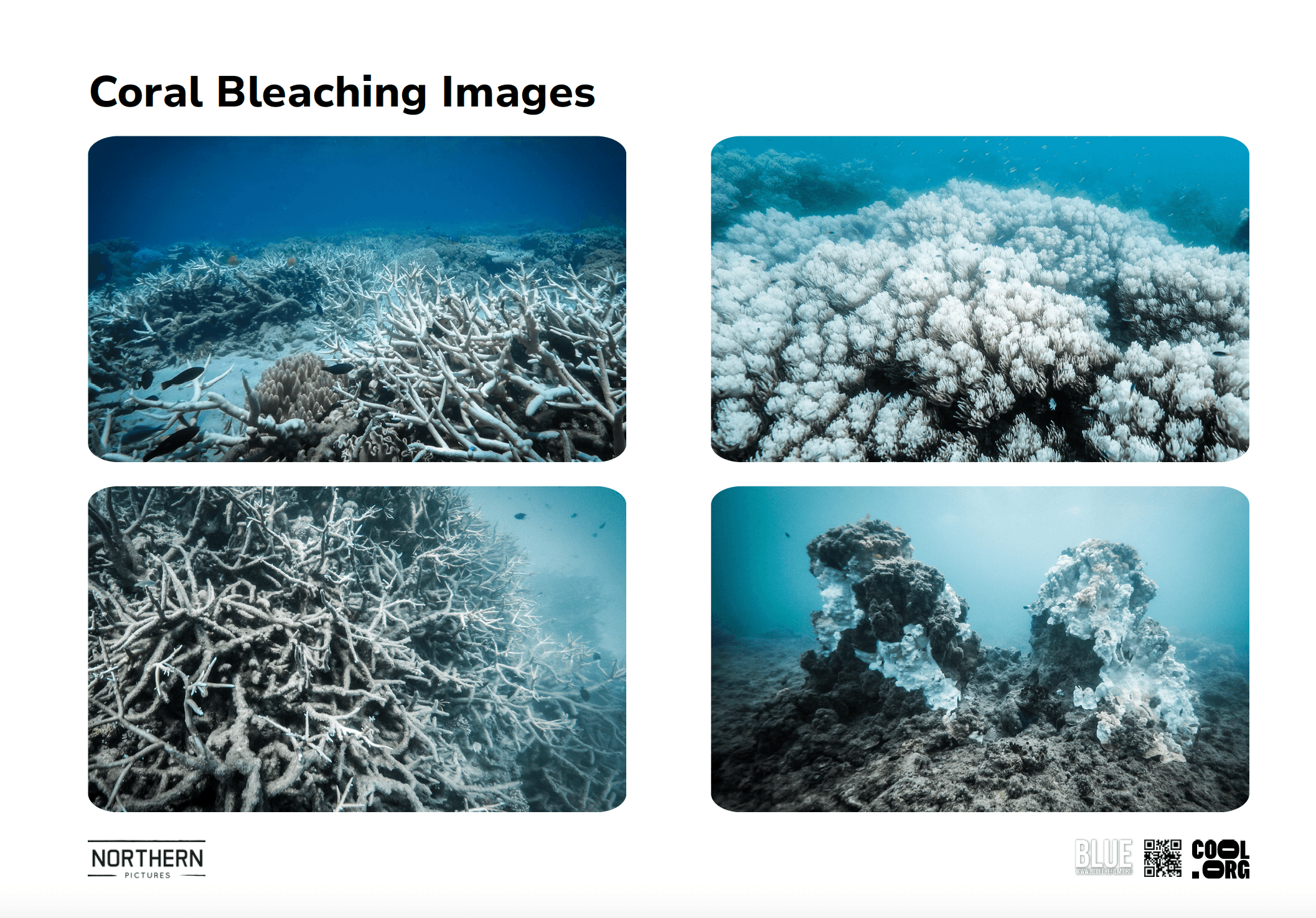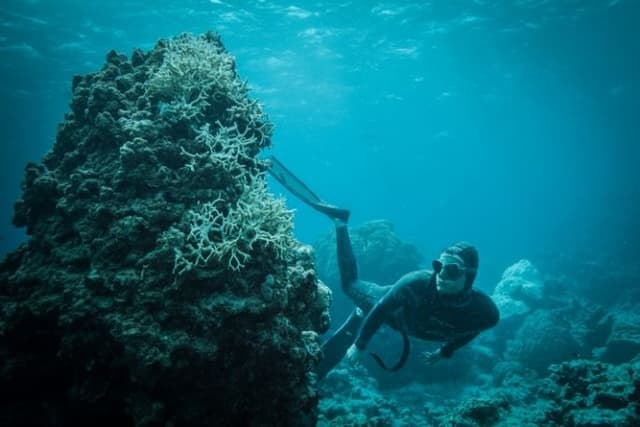
Blue - The Reef Creative Writing
Lesson3 of 10 in this unit
Year 7 - 8EnglishCreative writingLearning through filmEnvironmentalBiodiversityConservationOceansWater
Summary
Lesson Guides and Printables
Student Worksheet
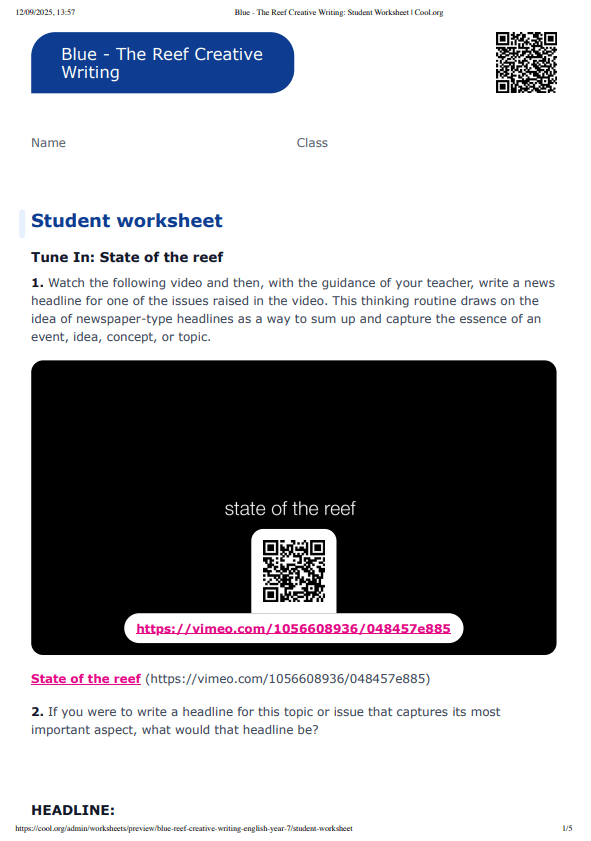
Teacher Content Info
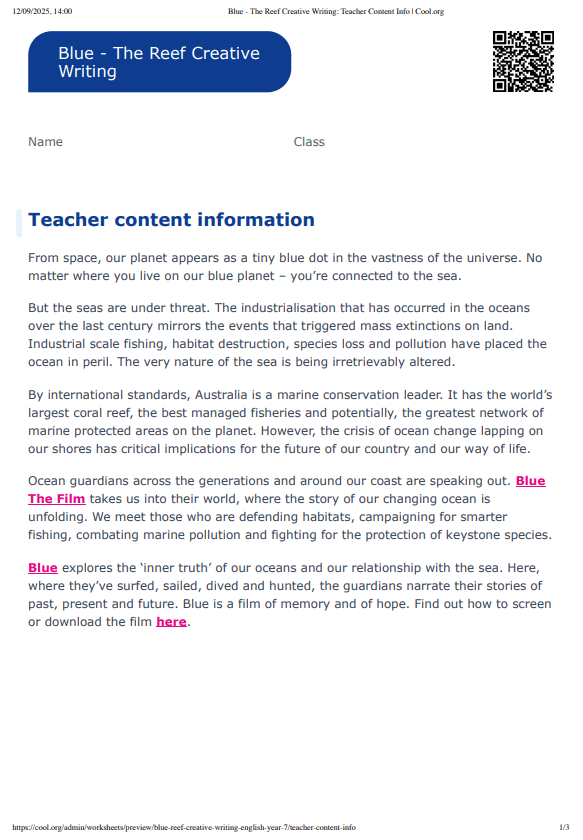
Lesson Plan
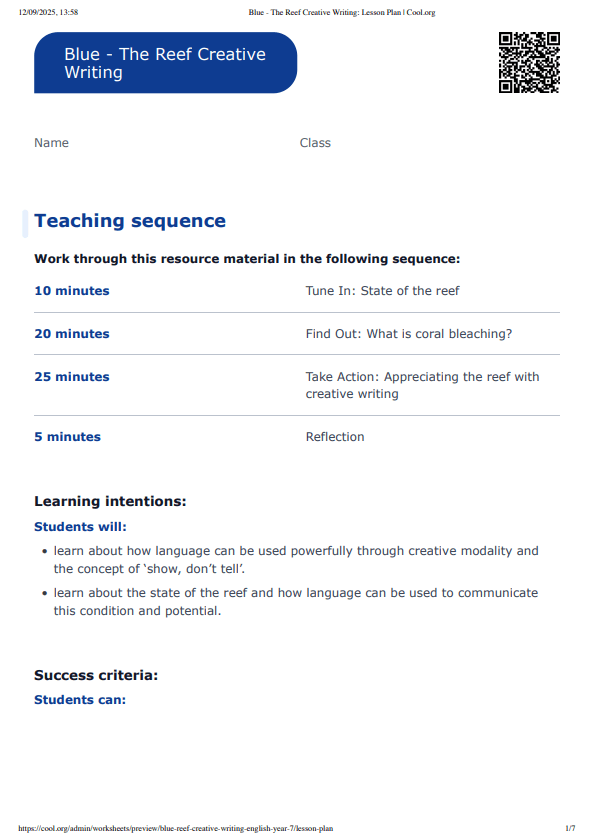
Coral Bleaching Stimulus Images
